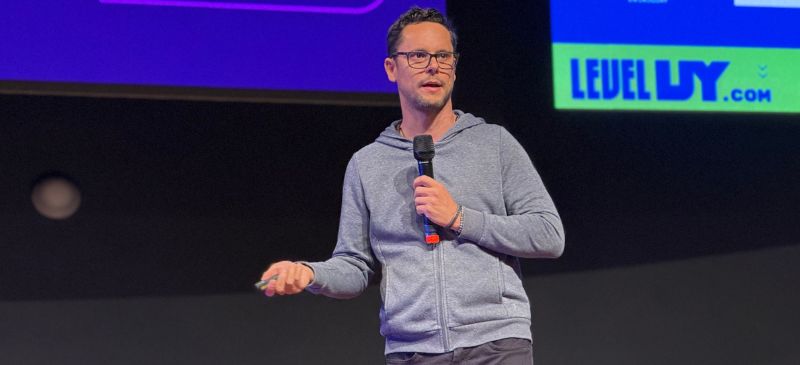- Home
- About us
- News
- Events
- EXPORT Export
-
BUY
Buy
Buy
- INVEST Invest
- COUNTRY BRAND Country Brand
-
INFORMATION CENTER
Information center
InformationCenterInformationCenterReports Country reports Department reports Foreign trade reports Product-Destination worksheet Sectors reports Work documentsStatistical information Classification Uruguay XXI Exports Imports Innovative National Effort Macroeconomic Monitor Tools Buyers Exporters Investors
- Contact
-
Languages
Estevão de Mello: “Uruguayan Developers Can Compete with Larger Industry Players"
Brazilian CTO of Akupara Games Highlights Success Factors for Uruguayan Developers at Level UY 2024
Share:

Estevão de Mello Motta, Head of Technology at the US company Akupara Games, has known about the Kingdom Rush video game and the studio that created it, Ironhide Games, for a decade. What he didn’t realize was that they were Uruguayan.
For him, what truly distinguishes independent games is their originality and creativity. Now, thanks to the sponsorship of Uruguay XXI and after having been to Level UY—the largest meeting of the video game industry in Uruguay—he met its creators and concluded: “The location of a game developer is not a determining factor for success. As it is a digital world, Uruguayan developers are not disadvantaged compared to countries with more prominent industries.
In October, his company participated in Pitch Day, a virtual event organized by Uruguay XXI in which 16 Uruguayan studios presented their projects to a panel of 22 foreign publishers, distributors, and investors. After that experience and initial personal contact with some developers during Level UY, De Mello Mota emphasized the value of creativity and authenticity.
While he recognizes that game developers in countries like Uruguay may face specific challenges, he is confident they can be overcome with a solid product and a clear understanding of the market.
“As indie developers, we don’t have much money, so we have to make smart decisions and try to do it with less,” he said, calling for the momentum that many ‘good and talented’ indie games can provide to be harnessed. Standing out through indie production is more feasible for a country’s industry than aiming for a large-scale alternative. And that is what is happening in Uruguay.
In this sense, he advised small developers and those who want to take their first steps not to be afraid to connect and ask their peers for advice. “You have Ironhide Games here, which is a benchmark. They have much knowledge to give back to the industry, probably more knowledge than I do,” he said.
In addition to product quality, Estevão mentioned other factors contributing to the success of developers of this scale, such as networking and building a solid relationship with the publisher and distributor. However, for him, all these factors are secondary to creating a good and interesting product to stand out in the global market.
In this sense, Uruguay enjoys a unique prestige as it offers quality services and products as competitive as those of the first world. When differentiating themselves, he highlighted the importance of what he called a “unique selling point” that sets the game apart from the crowd. “The unique selling point for the publisher and the public is how you present the difference between your game and the others,” he emphasized, urging developers to identify and enhance what makes their game unique.
In that sense, during his conference, he advised creating games from passion and authenticity rather than from a cold exploration of what publishers and distributors are looking for.
“That doesn’t mean it’s not necessary to understand what publishers want. You have to invest time in research because a high-quality game, even if created in a country with a less developed video game industry, has a good chance of success if presented to the right publisher,” he concluded.
Uruguay will participate in the next Game Developers Conference (GDC), which will take place from March 17 to 21, 2025 in San Francisco, California.
